Why the battle between developers and Southwark Council is threatening the future of Dulwich Hamlet FC
One of the country's most popular non-league clubs is at risk as the owners of its ground try to force through a controversial redevelopment. Southwark Council are trying to stop them and even senior club figures sympathise
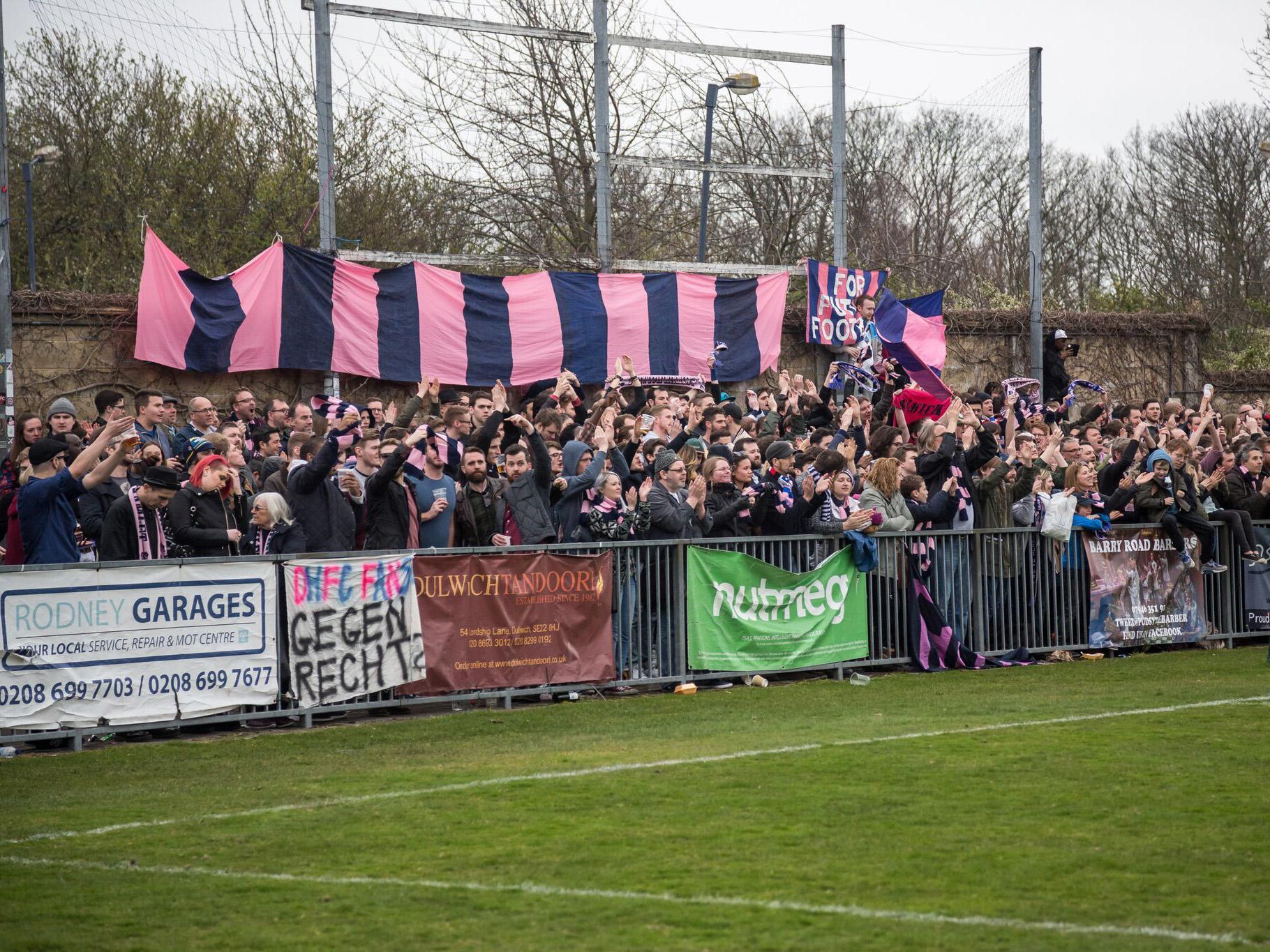
In one corner is Meadow Partners, the property developers desperate to turn the Champion Hill site, that they paid £5.7million for in 2014, into 155 houses and flats, even throwing in a new £7.5million football ground too.
In the other corner is Southwark Council, determined to stop them. Southwark is a Labour council, has its rules on affordable housing, and says that Meadow’s plan does not meet them, amongst other concerns. So they are holding it up in the courts and contesting the planning appeal.
Caught in the middle is Dulwich Hamlet Football Club, who play at Champion Hill. They are run and funded by Meadow, and so their future is inseparable from the success of Meadow’s plans. For as long as Meadow and Southwark play chicken, the club is at risk.
Years of tension will climax in the next few months. The planning appeal will commence on 12 December. Meadow submitted their plan 18 months ago and have already spent £1.8million on the process. Before then there is a separate legal process over the Green Dale fields next to the ground, with Southwark trying to take the lease back from the football club. The council have pointedly applied to secure their legal costs against Dulwich Hamlet. If they are successful the club will be left with a six-figure legal bill they would be unable to pay. The hearing is on Monday.
Meadow, as Dulwich Hamlet’s self-appointed saviours, say that they are defending the club from the overbearing and obstructive council. They say the club is financially unsustainable and only through Meadow can it survive. Once they have built a new stadium, Meadow have promised to put the club into fan ownership. But Peter John, the leader of Southwark Council and the man standing in their way, says that Meadow are offering the club a “false choice” between development and death. So whose side are the football club on?
On the surface Dulwich Hamlet look like one of the healthiest, happiest non-league clubs in the country. There were 2,417 people there on Saturday for the 2-0 win over Needham Market in the Bostik Premier Division. Yes, it was Non-League Day, and fans could pay whatever they wanted, but it was no one-off. Last season they drew 2,834 against Macclesfield Town in the FA Trophy quarter-final, 2,805 against Billericay Town and 2,517 against Enfield Town in the play-offs. Their crowds are the highest in Step 3 by a distance and would not look out of place in the National League or even the lower end of League Two.
The team itself is on the brink of the next big step. In his nine years in charge Gavin Rose has guided them back into the Isthmian Premier Division (now the Bostik Premier) and they are always at the top end. They have lost the play-off final to get into the National League South two years in a row: to East Thurrock Town in 2016 and to Bognor Regis Town this May. This year Dulwich are back again, up to second place, one point behind Billericay.
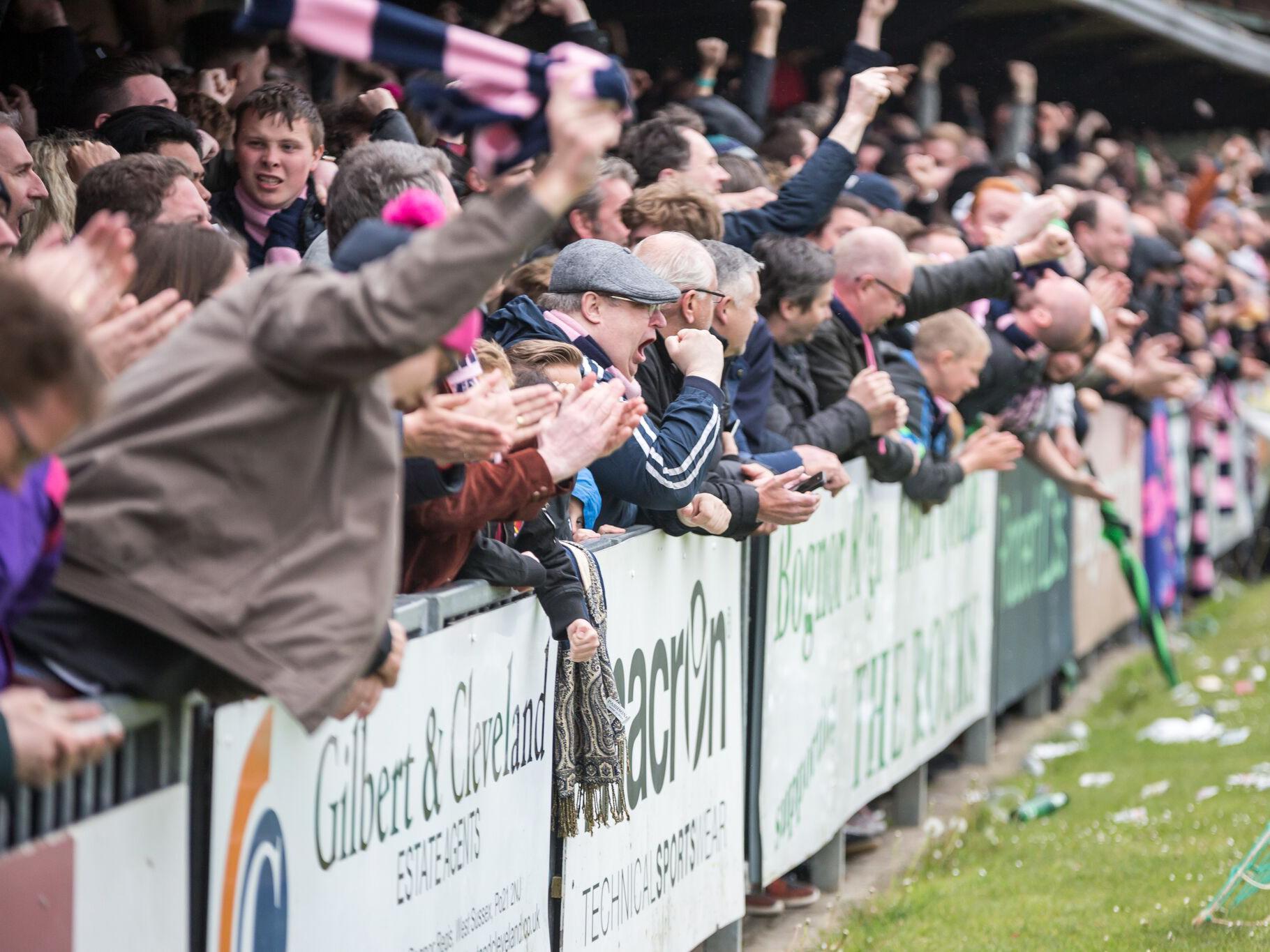
It is the club’s location that explains why its popularity and profile exceed its playing level. There are not many football clubs in Zone 2, certainly not in areas like Dulwich. But playing on land that valuable, that in today’s London property market could be turned into £80m worth of properties, brings its own issues.
In March 2014 Dulwich Hamlet were within minutes of going bust when new developers stepped in to take over. Hadley Property Group, in conjunction with their funders Meadow Partners, bought the freehold to the ground for £5.7million. They took over the effective running of the club, too, although ownership stayed with Nick McCormack. Hadley had plans for re-development – flats and a new ground – and they worked closely with the football club and with the Dulwich Hamlet Supporters' Trust. The new owners signed an agreement with DHST saying that once a new ground was built, they would hand the club over to their democratic fan ownership.
In the summer of 2016 Hadley stepped away and the project was taken on by Meadow Residential, a new development arm of Meadow, who took over the running of the club. Since then ticket prices have gone up and the wage bill has gone down, measures Meadow insist are inevitable because of the financial state of the club. Meadow says that the club is losing “around £150,000 per year” even without paying any rent or operational costs, “and will close without Meadow’s backing”.
This pessimistic view is disputed at the club, though, by those who point to the fact that the gate receipts for the season so far are 160 per cent of this season’s wage bill, and that resources like the bar and the gym are not utilised fully. For these internal critics Meadow are no longer seen as the club’s solution, but as the problem.
Towards the end of the 2016-17 season, with the club in a play-off place, manager Gavin Rose wanted to find out from Meadow what his wage bill would be for the next season, whether the club was in the Bostik Premier or the Conference South. He was told it would be cut from £5,000 per week to £4,000 per week.
This was when Billericay Town’s own weekly wage bill had flown beyond £20,000 with the additions of Jamie O’Hara and Paul Konchesky. Of course Rose did not expect Dulwich to get near that, but he did want some ambition, or even the slightest outline of a plan from Meadow. “You still want to be competitive, and when you’re getting told that your budget is going to get cut by 20 per cent, knowing full well that Billericay are going to go for it next season, it’s a bit deflating,” Rose says. “It makes it difficult to plan and shape a team, short-term or long-term.”
“There has never been any realistic talk about how we can narrow the gap between us and Billericay. Not necessarily in terms of the same finances, because no-one is going to compete with that. But what do we need to make it a bit more of a challenge? There is no ambition about where the club is going to end up.”
So Rose refused to sign his new contract, Dulwich lost the play-off final and prepared for another season in the Bostik Premier. Meadow told Rose that to make up the extra £1000 per week players would have to declare as self-employed and invoice the club for their appearance fees.
Rose told Meadow it was unprecedented in non-league football and would never work. Only when Meadow promised to restore the wage-bill back to £5,000 per week did Rose sign his contract, in late June. More than three months on it has not got back to that level yet.
Meadow say that they are committed to building Dulwich a new stadium and securing a long-term future for the club, but that they need Southwark Council to work constructively with them. Meadow’s feud with the council is always there in the background. In July, before pre-season started, Meadow told Rose that Southwark’s attempt to take the lease of Green Dale back meant that there would be no money for football at all this season, a threat that has been hanging over the club ever since. “I just continued doing work as I would and never heard another word about it,” Rose says. “Even to this day I don’t know if they would call me and say the same thing again. It’s just been left like that.”
So Dulwich looked to fill the wage-bill gap through other means. In July Rose heard that the club would be due a windfall from the transfer of Ethan Pinnock from Forest Green Rovers to Barnsley. Pinnock came through the youth system at Dulwich, Rose gave him his debut at 16 and he went on to play 204 games for the club. Forest Green Rovers paid £15,000 for him in June 2016, money that was halved between Dulwich Hamlet and their Aspire Academy, which Rose runs.
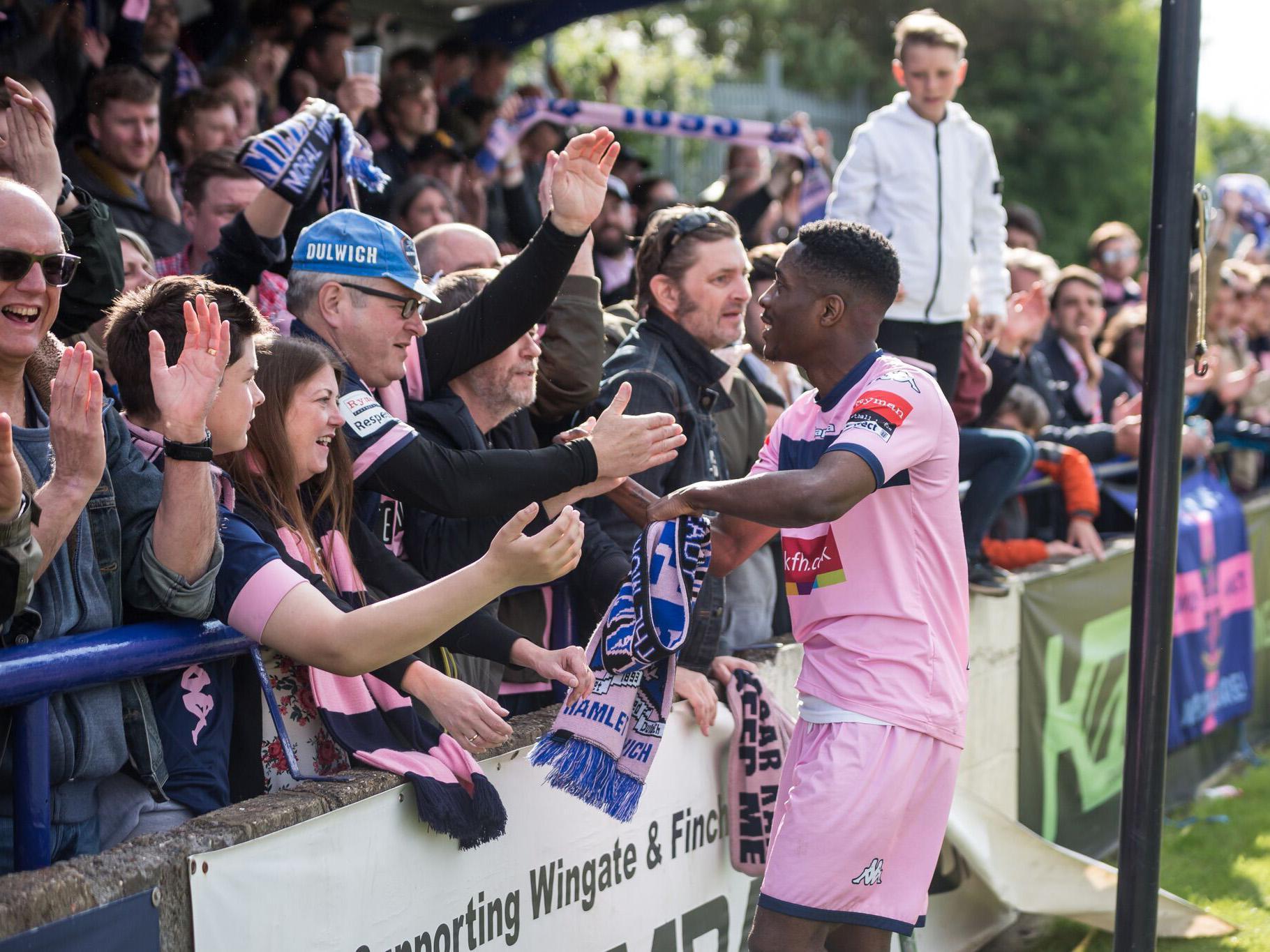
Pinnock impressed in National League football so in July this year Barnsley signed him for £500,000. Rose had negotiated a 15 per cent sell-on clause, which minus the initial £15,000 fee came to £60,000. Half of that would go to the Aspire Academy and the other half to Dulwich. Rose hoped that £30,000 would go towards his wage budget. It did not.
“I thought that would help us with the budget cut, as it was money that Meadow would not have budgeted for,” Rose says. “So it was basically like a present, and I thought that we had solved this problem, by the work we had done previously with Ethan. So for Meadow to say that was not going to be made available was quite hard to take. Ethan was a product we nurtured for six or seven years, they had no idea of the work that had gone into him. They were profiting off the back of him, and I thought that wasn’t great.”
Liam Hickey is club chairman, attended his first Dulwich game in 1969 and has been involved with the committee for over 30 years. He has found Meadow increasingly difficult to deal with this year. “At nearly every level of football, people invest money for the love of the game,” he says. “What is very clear in discussions with certain people at Meadow is that they don’t get this concept at all. They can’t understand why anyone wants to put money into football. It is completely alien for a property company to try to run a football club.”
There is no higher protection of land in London than ‘Metropolitan Open Land’, the closest London has to a greenbelt. Development is only allowed on it under proven “very special circumstances”. The land immediately west of Champion Hill – known as Green Dale – is MOL and is owned by Southwark Council, but has been leased to Dulwich Hamlet FC for years.
Meadow’s development plans involve building their 155 residential units on the Champion Hill site, which they own, and the new 4,000 capacity stadium on Green Dale, which the council owns. But this year the council changed their mind and decided to take the lease back from the football club. The case will be settled next month.
Without the lease of Green Dale, it is very difficult to see how the development can proceed. Southwark insist that they are not doing this to obstruct Meadow, but for their own real reasons. “They club have had the lease of Green Dale for years, but it has not been maintained, and has fallen into disrepair,” council leader Peter John says. “We are trying to invest and improve in our green spaces, so we have sought the termination of the lease. We think that we can do a better job.”
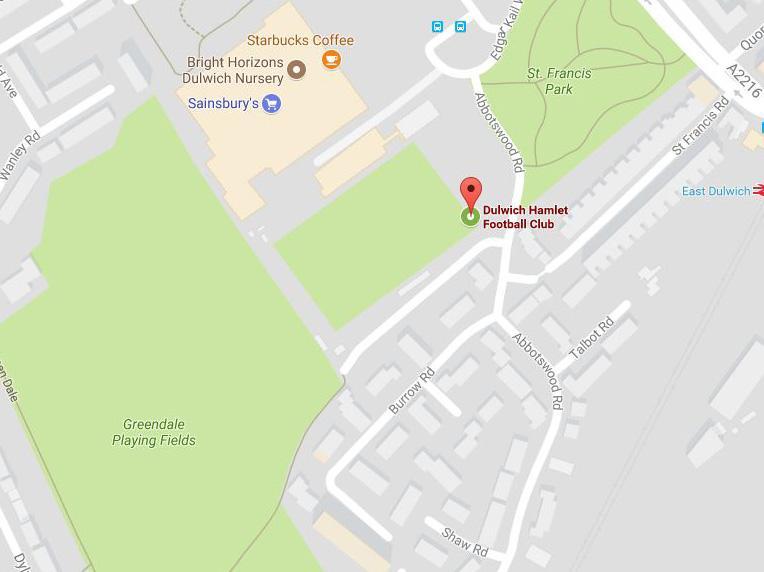
Meadow do not see it that way. They point to the club’s offer in July to lease only a small part of Green Dale, giving the rest of the land back to the council. They say that Southwark’s stance on the lease, by blocking development, is putting the future of the club at risk. Meadow even describe Southwark as seeming “hell-bent on undermining the club’s future”.
Whether Southwark want to do that will be clear soon enough. The council have spent an estimated £450,000 on the legal process so far and have applied to secure their legal costs against the club. This will be heard at Central London County Court this Monday, and if Southwark are successful then the club could be landed with a six-figure legal bill. Despite Meadow’s stake in this process, they say they would not be liable for the bill. If the council chose to pursue it, they would bankrupt the club. Peter John insists that Southwark would not. “We have no interest in jeopardising the future of the club,” he says. “We are never going to let the club fail.”
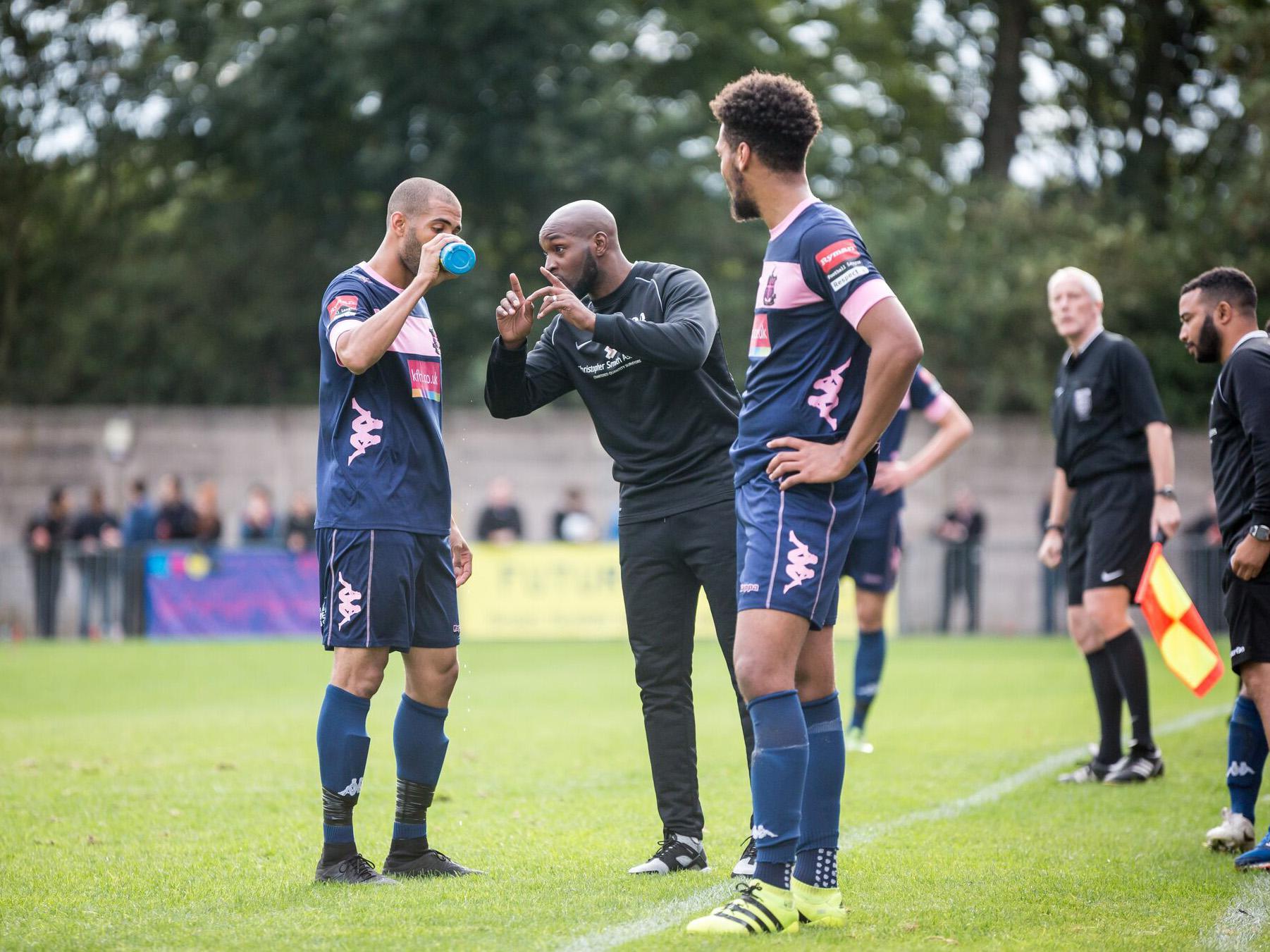
If the club succeed in retaining even part of their lease, that strengthens Meadow’s case going into December’s appeal, the final battle in this saga. The application was first submitted on 24 March 2016, amid early optimism. Southwark had told Meadow in December 2015 that council officers were “broadly supportive” of their plans, so Meadow initially expected it would be determined by that summer.
The plan enjoyed strong support from Dulwich fans too, with 94 per cent of DHST members voting in May 2016 to support development plans, which would provide a new ground as well as putting the club into fan ownership. That is still what DHST still hope for, although they recognise that the longer this situation drags on the more damage it does.
“The longer things drag on without there being some resolution to the situation, the club’s future is being further put at risk,” said Alex Crane, chair of the DHST. “The proposed redevelopment of Champion Hill offers the best chance to secure the long term sustainability of the club, transferred debt free to the people who care about it most – the fans. That would be the quickest way to resolve this. Then we can get on and build upon the great work we’ve done already and continue to see the Club progress and reach its full potential on and off the field.”
The problem is that Southwark did not determine Meadow’s plan as quickly as anyone hoped. On 24 January 2017 Meadow reluctantly submitted their appeal. Southwark said they could not support it as Meadow had not proven the “very special circumstances” that justify building on MOL.
Nor had Meadow provided for as much affordable housing as Southwark wanted. The council’s target is 35 per cent in any new development. Meadow’s plan provides for just 16 per cent: 10 shared ownership flats and 15 affordable flats out of 155 in total, arguing that is the consequence of spending £7.5m on a new ground. But affordable housing has always been Southwark’s stated priority, more than a new ground for Dulwich Hamlet, and they do not think Meadow’s plan passes their test. Meadow argue that it is just a “smokescreen” for the council to “hide their undermining of the club”.
On almost every point Southwark and Meadow are at odds, and it will all have to be settled by the planning inspector. Both sides naturally say that they are very confident that the inspector will agree with their case.
Gavin Rose grew up in Peckham, played for the club in the early 2000s before taking over as manager in 2009. He has plenty to gain from the development’s success, and yet he has his own reservations about it. Meadow would like to frame the issue as being a choice for Dulwich Hamlet between their way or bankruptcy, with Southwark standing in the way of the club’s survival. But plenty of people at the club do not see it like that, including the manager.
There is particular sympathy from Rose for Southwark’s strong stance on affordable and social housing, which he knows his area needs. “I think we need a lot of social housing and affordable housing for local residents,” Rose says. “We know how much it costs to live in London now, it’s not easy for anyone to get on the ladder. If you can get in a level of affordable housing, people can get a chance to better their lives for their families. If there are less opportunities for those families, we are not servicing the community. I understand why the council have taken that stance.”
Chairman Liam Hickey has seen plenty of owners come and go over the years and does not mind who comes in to take the club forward. But he knows that there are other interested parties and does not believe it is Meadow or bust: “I think if Dulwich Hamlet Football Club, with its vibrancy, its social media presence, its ethics, its values and its profile came to market, it would not want for suitors who would be willing to acquire it, and to build a slightly different business model around it.”
Meadow insist that they are going nowhere, that they expect to win and that they intend to develop the site. But what Dulwich Hamlet need is someone who can work with the council to find a solution for the club and the area. “At the end of the day, it is a viable club, the gates are very good,” says Rose. “A new purpose-built stadium would be fantastic for the local community. But we have to make sure that everyone is happy. "It’s time for Meadow to either make it work for the club, make it work for the council and make it work for themselves - or to step aside and let someone else do it.”
Join our commenting forum
Join thought-provoking conversations, follow other Independent readers and see their replies
Comments
Bookmark popover
Removed from bookmarks